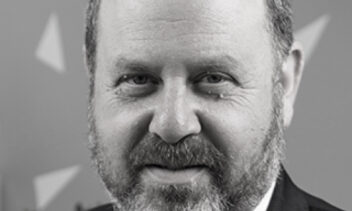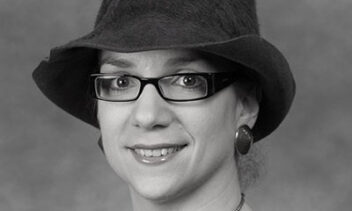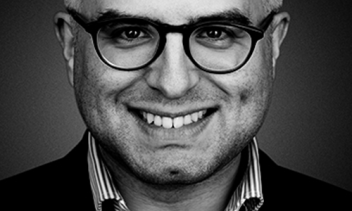Where My Education Began
My Jewish education began on my living room couch. I was about five years old and I came back from my first-grade class with a new enemy: the Ashrei prayer. It was very long, had words I was not familiar with, and just seemed endless. “I don’t like Ashrei,” I told my mother. She placed me on her lap and said, “Let’s help you become friends with Ashrei.” That will forever stand out as my inauguration to Jewish education. It is why I always say that if you placed every teacher I ever had on one side of a scale, it would still not outweigh the Jewish education I received from my parents. And that entry into Jewish education still shapes what I think Jewish education is all about: developing a friendship with Yiddishkeit.
What Time Is It?
“It was the best of times, it was the worst times,” wrote Charles Dickens in his introduction to A Tale of Two Cities. Rav Kook wrote something similar about his generation in his essay called “Ma’amar Ha-Dor,” (“On the Generation”):
דורנו, הוא דור נפלא, דור שכולו תמהון. קשה מאד למצא לו דוגמא בכל דברי ימינו. הוא מורכב מהפכים שונים, חושך ואור משמשים בו בערבוביה. הוא שפל וירוד, גם רם ונשא ; הוא כולו חייב, גם כולו זכאי. אנחנו חייבים לעמוד על אופיו למען נוכל לצאת לעזרתו.
Our generation is a wonderous generation, a generation full of amazement. It is very difficult to find a comparison in our entire history. It consists of opposites: light and dark serving together in a mixture. We are lowly and cheapened while also exalted and dignified. We are all guilty and we are all innocent. We must be attentive to its nature so that we can come to its aid.
I am sure such opposites can be said about many generations, many phenomena, and many periods in our long storied history. But when I see conflicted, opposing, complex descriptions, I think about this moment—our generation—and I think specifically about Jewish education. Let me explain why.
It Was the Best of Times
Professor Shaul Stampfer has written two amazing books, both of which discuss the history of Jewish education. In his book Families, Rabbis, and Education, he details the evolution of the cheder system. I certainly don’t want to besmirch the original cheder system, but I would respectfully submit that we may be romanticizing what Jewish education used to look like. First, it was nearly exclusively for boys. Girls, and this was part of a broader phenomenon even outside of the Jewish community, were not expected to have a proper education—certainly not a Jewish education. Second, there were no schools—most of the education took place in the house of the teacher. And finally, it didn’t last that long. It was mostly concerned with kids until their Bar Mitzvah age.
Of course, there were some incredible centuries of high-level Jewish education that took place within the yeshiva system, as Professor Stampfer details in his other book, Lithuanian Yeshivas of the Nineteenth Century, but such yeshivas were much more focused on a small sliver of the most elite Jewish minds. Just glance at the enrollment numbers of pre-WWII yeshivas (you can find many of the actual numbers in Ben-Tsiyon Klibansky’s The Golden Age of Lithuanian Yeshivas) and you’ll see that most yeshivas had enrollment smaller than a single grade in a contemporary Jewish school. Today’s largest schools have enrollment greater than all the yeshivas of yesteryear combined—by a wide margin!
In many ways, Jewish education has never been stronger than it is today. I, for one, am a product of the success of Jewish education in America. The first Jewish school my father attended was in college at Yeshiva University. My mother had a Jewish school in Portland, Maine that was established by my grandfather but it only went until sixth grade. Her grade, one of the largest, had 18 students. My mother’s mother, a rebbetzin, could not read Hebrew. She would bentch in English. My father was the one Bashevkin who insisted on sending his children to Jewish day schools. I don’t have to wonder about the impact of Jewish education on my life—most of my extended family never received a robust Jewish education and their continued engagement with Jewish life is simply worlds apart. Every extended family picture is a reminder not to take my own Jewish education for granted.
Most, particularly younger students of Jewish schools, have a harder time appreciating the strides and impact of Jewish education. Their parents likely were graduates of Jewish elementary schools and high schools; some may have taken a gap year in Israel, and many continued their studies in Jewish education. The idea that we have options for Jewish schooling in the United States beginning in nursery and extending straight through college is simply unimaginable in the larger Jewish history. To state it plainly: Never in the history of the Jewish people has Jewish education catered to so many and for so long. As Jack Wertheimer notes in his book, The New American Judaism, that is what ensured the success of the Orthodox community. As he writes, “The great advantage Orthodox Jews have over most of their non-Orthodox counterparts is their relatively high level of Judaic literacy.” This is a wondrous generation. And yet…
It Was the Worst of Times
How can a generation that is more Jewishly educated than any other education in Jewish history be considered the worst of times? I think for three reasons:
1. Not All Communities: Jewish education has still not reached all Jewish communities. As Wertheimer notes, this is still largely an Orthodox phenomenon. Of course, Solomon Schechter, Jewish camping such as Camp Ramah, and pre-Bar and Bat Mitzvah classes in synagogues have made crucial contributions to Jewish education in non-Orthodox populations. But there still remains a tremendous gap in basic Jewish literacy, for all of our strides and achievements, in making it more accessible, between those who were given a formal Jewish education and those who were not. Talking about the achievements of part of the American Jewish population, however incredible they may be, does not discount the fact that most American Jews have not received a strong Jewish education. There are almost 8 million Jews in the United States and the success of some segments of the population can’t distract from the needs of the larger Jewish population—both in the United States and around the world.
2. The Cost of Jewish Education: If Jewish education has been the single most important ingredient for the success of the Jewish community in America, then the cost of Jewish education has become the single most important threat to that success. I don’t need to parrot the stats of how expensive it has become, and this is not the place to share some of the creative solutions that have been posed. I’ll just say plainly what I feel is at stake if we don’t solve this issue: Judaism is going to become a socio-economic status instead of a religious people. In the 1950s and 60s, Jewish schools knocked on the houses of parents begging them to send their kids to receive a Jewish education. Nowadays, parents are knocking on the doors of schools begging them to accept their children despite their inability to pay. I am worried that in one more generation, parents may stop knocking.
3. The Goal of Jewish Education: Jewish schools began for the most ideologically committed. In the mid-1900s, Jewish schools were either for the most committed parents or, in my grandfather’s case, young boys who insisted on yeshiva. Thankfully they have become the norm in many parts of the Jewish world. So why are we still so nervous about this generation of Jewish day school graduates? Why are so many still so disenfranchised? Why do so many feel that without a gap year in Israel their Jewish education will fall to the wayside? Jewish education is serving a new population—it is not just the ideologically committed, but those who entered the world expecting a Jewish education. And sometimes it feels like we are just continually trying to cram the entire Jewish population into the original box that high-level Jewish education emerged from, the pre-war yeshivas. And we are starting to see that everyone may not fit. I have been in rooms discussing the state of Jewish education with educators, students, and parents, and it feels like a Mexican standoff—the parents are blaming the schools, the schools are blaming the parents, the gap-year yeshivas and seminaries are blaming the high schools. Everyone seems to be shouting at one another wondering who is not doing their job. It’s hard to diagnose the issue over all of the fretting and yelling, but to me, at least, it seems like we may have lost the plot to Jewish education. We have forgotten the privilege of Jewish education. We have forgotten how easily this could, God forbid, crumble. And we have forgotten that Jewish education needs our attention, our advocacy, and our life-long commitment, without which it will whither. Every coal mine has its canary, and the canary of the Jewish education coal mine is Jewish educators. And they are chirping—there is a well-documented crisis that people do not want to enter Jewish education. There is a crisis that Jewish educators do not feel the esteem of their work. And without a future of robust and committed Jewish educators, there will be no Jewish education. This wonderous generation needs to recover the plot. Perhaps, as my mother taught me, we need to relearn how to become friends with our Judaism.
Success can be blinding, and the success of Jewish education may be blinding us to cracks within the grand edifice we have built. I don’t think we need to be alarmist—I’m naturally an optimist, especially when it comes to Jewish education—but we can’t be passive either. There is a new generation, one which 18Forty, in many ways, was created to address: post-institutional Jews. In a generation where people are reared by Jewish institutions from nursery sometimes through college, we have an emerging class of Jews that confront their autonomy and independence for the first time in their twenties. As I discussed in my conversation with Rabbi Ari Koretsky on 18Forty:
Our target audience is not a particular denomination. It is an experiential group. And I would call it post-institutional Judaism. It is people who have had an experience within Jewish institutions of whatever denomination, of whatever sort, Solomon Schechter, Yeshiva University, Lakewood, Chabad, Yeshivat Hadar, Camp Ramah there are a lot of Jewish institutions, but a post-institutional Judaism. And you get a certain framework inside of an institution, and now you leave that institution.
Now the question is, now what? Now what? How do I rebuild? How do I contend? Once you take that pot off of the fire, how do I keep that excitement, commitment going? It’s not an inspiration podcast because I think we’re trying to contend with the totality of religious experience, which has to do with some religious issues, it has to do with some emotional issues, some sociological issues, as I mentioned. But it’s helping people reconnect with their faith, with their commitment.
Jewish education cannot become exclusively constrained to our years under the auspices of Jewish institutions. One of the curious side effects of great Jewish schools is that we can spend the rest of our lives thinking our best religious years will always be behind us. Our best religious years should always be in front of us. “Educate a child according to their pathway,” it says in Mishlei, “and even when they get older they will never veer from it.” What is the “it” in the second part of that verse? We normally think “it” refers to the pathway. Jewish education ensures that people stay on the path, they won’t, so to speak, go off the derech. But maybe, suggests Rav Hutner (Pachad Yitzchak 6:3), Jewish education is not just about a specific path—it is about falling in love with education itself. Educate a child according to their way and even when they get older they will never veer from it; what is “it”? “It” is education itself. And Jewish education that resonates creates a community of lifelong Jewish education. A community that no matter what times we may be in, our wondrous generation can build together.








